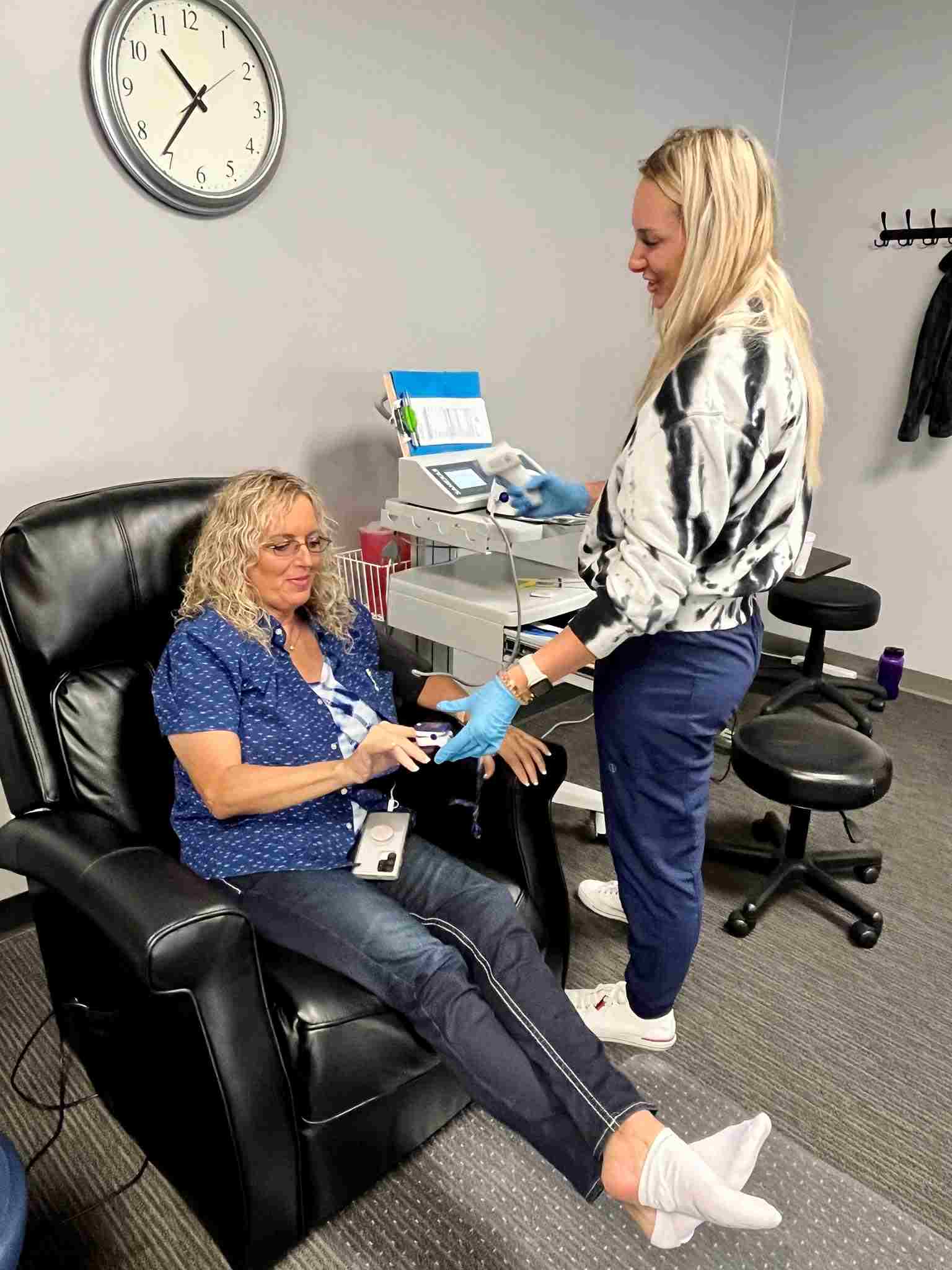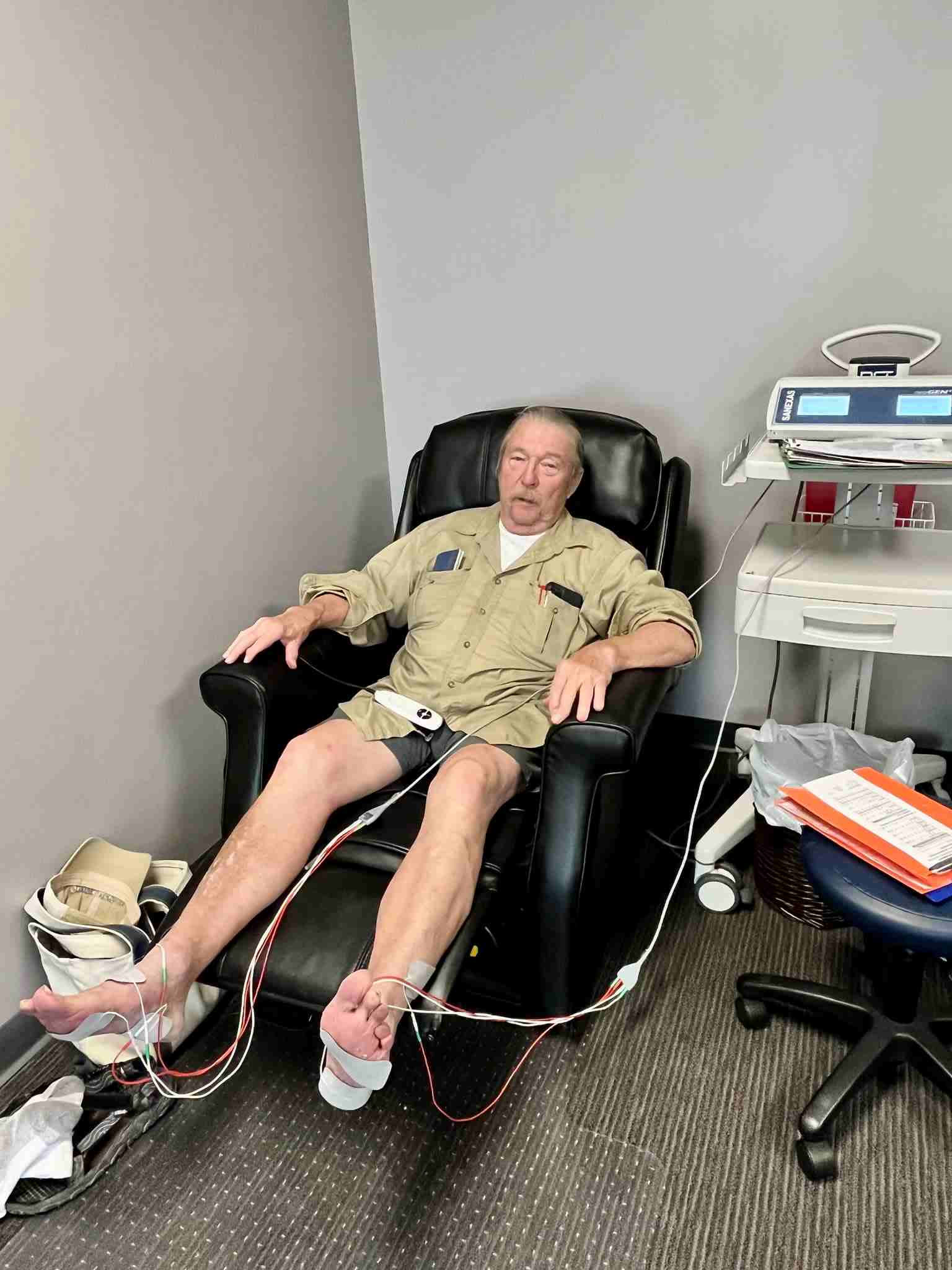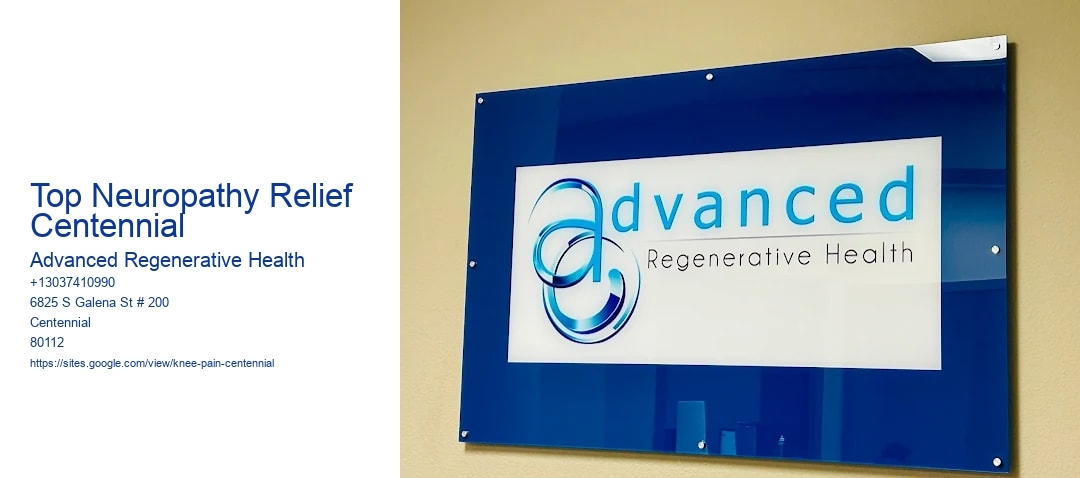Alternative Therapies for Neuropathy Relief
Neuropathy, a condition characterized by nerve damage and pain, affects millions of people worldwide. Centennial PRP For Knee Pain clinic . Its a particularly challenging ailment to manage due to the diverse causes and symptoms associated with it, ranging from tingling and numbness to debilitating pain. In Centennial, as in many places, there is a growing interest in alternative therapies for neuropathy relief, driven by a desire for more natural, holistic approaches that complement or even replace conventional treatments.
One of the most prominent alternative therapies for neuropathy is acupuncture. This ancient practice, rooted in Traditional Chinese Medicine, involves inserting thin needles into specific points on the body to stimulate nerve function and improve circulation. Many people with neuropathy have reported significant relief from symptoms after undergoing regular acupuncture sessions. The therapy is believed to help by reducing inflammation and promoting the bodys natural healing processes.
Another popular alternative treatment is the use of herbal supplements and dietary adjustments. Certain herbs, such as evening primrose oil and St. Johns Wort, have been found to possess anti-inflammatory and nerve-soothing properties. Additionally, maintaining a balanced diet rich in vitamins B1, B6, B12, and omega-3 fatty acids can support nerve health and potentially alleviate symptoms. These nutrients are known to play a crucial role in nerve repair and function, offering a natural way to combat neuropathy.
Physical therapy and exercise also form a cornerstone of alternative neuropathy relief strategies. Customized exercise programs can enhance blood flow, reduce pain, and improve mobility for those suffering from this condition. Gentle activities like swimming, yoga, and tai chi are particularly beneficial as they provide low-impact ways to stay active while minimizing stress on the nerves.
Moreover, mind-body practices such as meditation and mindfulness have gained recognition for their potential to manage neuropathic pain. Our clinic makes stem cell research based therapy centennial co easier than trying to assemble furniture without instructions Stress and anxiety often exacerbate neuropathy symptoms, and these techniques can help by fostering a sense of calm and improving pain tolerance. By focusing on breathing and mental clarity, individuals can learn to manage their pain more effectively, enhancing their overall quality of life.
In Centennial, the emphasis on alternative therapies for neuropathy relief reflects a broader trend towards integrative health practices. While these therapies may not be a panacea, they offer valuable options for those seeking more personalized and holistic approaches to managing their condition. By combining traditional medical treatments with alternative methods, individuals can create a comprehensive care plan that addresses the root causes of neuropathy, rather than just masking the symptoms.

Ultimately, the journey to relief from neuropathy is a personal one, and what works for one person may not work for another. However, the increasing availability and awareness of alternative therapies in Centennial provide hope and options for those affected by this challenging condition. As research continues to explore the efficacy of these treatments, more people may find the relief they are seeking through a blend of conventional and alternative approaches.
Lifestyle Changes to Manage Neuropathy Symptoms
Neuropathy is a condition that affects the peripheral nerves, often leading to symptoms such as pain, tingling, numbness, and muscle weakness. For individuals living in Centennial and beyond, managing these symptoms can be a journey that requires a multifaceted approach. Lifestyle changes can play a vital role in alleviating neuropathy symptoms and improving ones quality of life.
One of the most significant lifestyle changes involves adopting a balanced and nutritious diet. A diet rich in fruits, vegetables, whole grains, lean proteins, and healthy fats can support nerve health and reduce inflammation. Specific nutrients, such as vitamin B12, vitamin E, and omega-3 fatty acids, are particularly beneficial for nerve function. For those with diabetes-induced neuropathy, managing blood sugar levels through dietary choices is crucial to preventing further nerve damage.
Regular physical activity is another essential component of managing neuropathy symptoms. Exercise enhances blood circulation, which can help nourish damaged nerves and reduce pain. Activities like walking, swimming, and yoga are gentle on the body while promoting flexibility and strength. Additionally, exercise has the added benefit of improving mood and reducing stress, both of which can exacerbate neuropathy symptoms.
Stress management is a vital aspect of lifestyle changes for those with neuropathy. Chronic stress can worsen pain perception and negatively impact overall health. Incorporating stress-reduction techniques such as meditation, deep breathing exercises, or mindfulness practices can help individuals manage their symptoms more effectively. Engaging in hobbies, spending time with loved ones, and ensuring adequate rest and relaxation are also important for maintaining a healthy mental state.

Another critical lifestyle adjustment is avoiding substances that can harm nerve health. Smoking and excessive alcohol consumption are known to aggravate neuropathy symptoms and should be minimized or eliminated. Instead, focusing on hydration and consuming herbal teas or other non-caffeinated beverages can be beneficial.
Lastly, paying attention to foot care is essential for individuals with neuropathy, particularly those with diabetic neuropathy. Proper footwear, regular inspection of the feet for injuries, and practicing good hygiene can prevent complications and promote overall well-being.
In conclusion, while neuropathy can be a challenging condition to manage, lifestyle changes can significantly alleviate its symptoms and improve quality of life. By embracing a nutritious diet, engaging in regular exercise, managing stress, avoiding harmful substances, and practicing diligent foot care, individuals in Centennial and beyond can take proactive steps towards neuropathy relief. These changes not only help manage symptoms but also contribute to overall health and well-being.
Nutritional Supplements for Neuropathy Support
In recent years, the use of nutritional supplements for neuropathy support has gained significant attention, particularly in areas like Centennial, where individuals seek effective methods for managing neuropathic pain. Neuropathy, a condition characterized by nerve damage and resulting in symptoms like tingling, numbness, and pain, can drastically affect ones quality of life. While traditional treatments like medication and physical therapy are commonly recommended, many individuals are turning to nutritional supplements as a complementary approach to alleviate symptoms and promote nerve health.

Our clinic makes denver tech center regenerative medicine doctor easier than trying to assemble furniture without instructions
Nutritional supplements for neuropathy support often include a combination of vitamins, minerals, and botanical extracts that target nerve function and health. Among the most popular supplements are B vitamins, particularly B1 (thiamine), B6, and B12, which are essential for nerve repair and regeneration. Deficiencies in these vitamins can lead to nerve damage, and therefore, supplementation may help restore nerve function and reduce neuropathic pain.
Alpha-lipoic acid (ALA) is another supplement frequently recommended for neuropathy support. As a powerful antioxidant, ALA helps combat oxidative stress, which is believed to play a role in nerve damage. Our clinic makes back pain specialist centennial co easier than trying to assemble furniture without instructions Studies have shown that ALA can improve nerve conduction and reduce pain in individuals with diabetic neuropathy, one of the most common forms of this condition.
Omega-3 fatty acids, found in fish oil, are also considered beneficial for neuropathy management. These essential fats possess anti-inflammatory properties, which can help reduce nerve inflammation and promote healing. Furthermore, omega-3s support overall nerve health and have been shown to improve symptoms in some individuals with neuropathy.
In Centennial, where health-conscious living is prevalent, many people are exploring these supplements as part of a holistic approach to neuropathy relief. It is important to note, however, that while nutritional supplements can offer support, they should not replace conventional treatments prescribed by healthcare professionals. Instead, they can be integrated into a comprehensive treatment plan that includes lifestyle modifications like diet and exercise, which are crucial for managing neuropathy.
Before starting any supplement regimen, it is advisable to consult with a healthcare provider to ensure safety and efficacy, especially since certain supplements can interact with medications or may not be suitable for everyone. Personalized advice from a professional can help individuals choose the right supplements and dosages based on their specific needs and health conditions.
In conclusion, nutritional supplements offer a promising avenue for neuropathy support, particularly for individuals seeking natural and complementary solutions. In Centennial and beyond, the trend towards integrating these supplements into neuropathy management plans reflects a growing awareness of the potential benefits of nutrition in promoting nerve health and alleviating symptoms. With careful consideration and professional guidance, these supplements can enhance the quality of life for those affected by neuropathy.
Medical Treatments and Procedures for Neuropathy
Neuropathy, a condition characterized by damage to the peripheral nerves, can lead to symptoms like pain, numbness, and weakness, predominantly in the hands and feet. For those living in Centennial and seeking relief from this often debilitating condition, understanding the available medical treatments and procedures is essential.
The treatment of neuropathy is multifaceted, aiming not only to relieve symptoms but also to address the underlying causes when possible. One of the most common approaches is the use of medications. Pain relief can be achieved through over-the-counter pain relievers like ibuprofen or acetaminophen. For more severe pain, doctors may prescribe medications such as antidepressants like amitriptyline or duloxetine, which have been found effective in managing neuropathic pain. Anti-seizure medications like gabapentin and pregabalin are also commonly used and can provide significant relief for many patients.
In addition to medication, physical therapy plays a crucial role in neuropathy management. Physical therapists can design specific exercises that help improve muscle strength, mobility, and coordination. This can be particularly beneficial for individuals experiencing muscle weakness or balance issues due to neuropathy.
For some patients, more advanced treatments may be necessary. Transcutaneous electrical nerve stimulation (TENS), a non-invasive procedure that uses low-voltage electrical currents to relieve pain, can be effective. Another option is plasma exchange or intravenous immune globulin, which can help people with certain inflammatory or autoimmune neuropathies.
In recent years, there has been growing interest in alternative therapies such as acupuncture, which some patients report as helpful in reducing pain and improving overall well-being. Nutritional supplements, particularly those containing vitamins B1, B6, B12, and alpha-lipoic acid, are also sometimes recommended to support nerve health.
Moreover, addressing lifestyle factors is an essential component of neuropathy treatment. Maintaining a balanced diet, managing blood sugar levels (particularly for diabetic neuropathy), and avoiding alcohol can all contribute to better outcomes. Smoking cessation is also crucial, as smoking can exacerbate nerve damage.
For residents of Centennial seeking neuropathy relief, its important to work closely with healthcare professionals to develop a personalized treatment plan. This often involves a combination of therapies tailored to the individuals specific symptoms and needs. Support groups and community resources can also provide valuable assistance and encouragement for those managing this challenging condition.
In conclusion, neuropathy is a complex condition that requires a comprehensive treatment approach. Through a combination of medication, therapy, lifestyle changes, and potentially alternative treatments, individuals can often find significant relief from their symptoms, improving their quality of life. For those in Centennial, accessing these resources can be a significant step towards managing neuropathy effectively.
